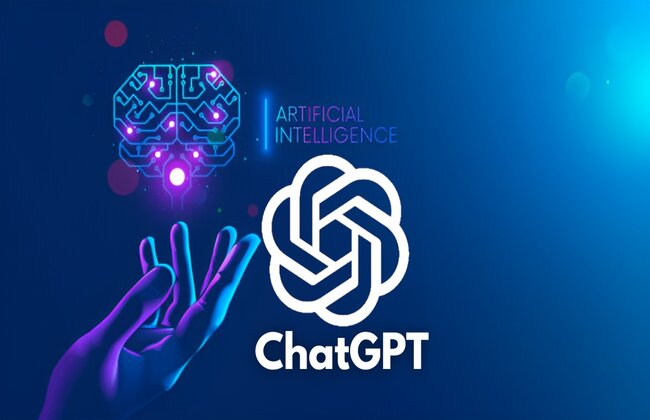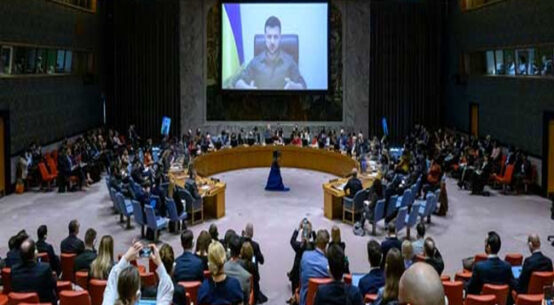
ChatGPT, an AI tool developed by OpenAI, bloomed into existence seemingly without warning and took over a vast majority of our daily lives. From writing emails and resumes to creating recipes or hilarious stories of your given prompt, this technology can offer a wide range of uses as long as you know what to ask.
Its popularity has skyrocketed, and its user base has reached a staggering one million a mere five days after its release, according to OpenAI president, Greg Brockman. This popularity isn’t unwarranted, as it is more than just a search engine. It gathers information from hundreds of sources from the World Wide Web and curates it to provide you with your needs within a few seconds, essentially skipping the first few steps you need to take when looking up something on a search engine.
Saving time and effort, and providing accurate and organized information are what makes ChatGPT stand out, and is the reason that it is becoming increasingly popular among students. In fact, 20% of teenagers who know of ChatGPT have used it for schoolwork, while the number stands at 24% for 11th and 12th graders. What makes ChatGPT such an important tool for education?
Well, at the baseline, a student may use this AI tool to understand their coursework better. Textbooks may be too complicated or class lectures too insufficient to get a good understanding of a certain topic. By typing the topic into ChatGPT’s chat bar with a question, students will be met with a comprehensive and easy-to-understand explanation of said topic. From there, students can ask further questions to enhance their understanding, as ChatGPT holds the ability to retain the memory of previously asked questions.
This is certainly a blessing for students, especially those who struggle with coursework. The use of ChatGPT, however, goes further than that, wherein it starts to raise questions of how far should we be allowed to use the services of this enigmatic tool.
Aside from just gaining additional understanding of a subject, students may also use ChatGPT to do their homework, write essays for them, create codes in any programming language to solve a problem, and that is just the tip of the iceberg. Professional applications, CVs, emails, etc. can all be written with ChatGPT. If you are able to edit and alter the results precisely, no one may be able to tell it was written by AI!
Needless to say, this creates an ethical dilemma. Obviously, having AI do your homework or write your codes will prevent you from earning the knowledge yourself. It will keep students from putting effort into their studies. Waiting for the eleventh hour of the deadline to input the question into ChatGPT will eventually cause slacking. Understandably, many institutions are working on banning the use of ChatGPT.
One could argue that artificial intelligence tool is not nearly intelligent enough to cause any lasting detriments to students. Anyone who has tried to use ChatGPT for complicated works knows that even this has limitations.
First and foremost, the knowledge pool of ChatGPT does not extend past 2021. In this research-oriented world, updated and accurate information is valuable. Thus, while ChatGPT can be used to learn basic information, if you want your work to be relevant, you will have to do the work yourself.
A quirk of ChatGPT is that although it can handle difficult questions, the more specific you get, the more overwhelmed it will become. Sure, it can write you a code to solve a specific math problem and even draw you graphs and charts, once you provide a lot of input, too many factors, or just ask for extra information, this tool will experience what we can safely describe as a “brain fart”, were it to have a brain. It will provide wrong or conflicting answers, sometimes even completely ignore parts of your criteria to make the information make sense in its artificial brain, and what you will be left with is a haphazard block of text and a lot of confusion and frustration.
Will ChatGPT get better with more updates? It is hard to tell, for even with simple prompts, it has been known to provide incorrect or inaccurate information, and change the information when asked a second time.
There is no denying that ChatGPT can make education easier for students, even to the point of harm. However, at the end of the day, it is still merely a tool. More niche jobs will still need human intelligence to be done, and it can be argued that by using ChatGPT to solve mundane problems, we free our brains and time for the more complicated ones.
No matter your stance on ChatGPT, it cannot be denied that it has made education inclusive and accessible. By using a chat format and simple language, it ensures students can get a personalized learning experience. It can adapt to the user’s needs and overall be a valuable tool in education.
Nadira Tasnim is an Assistant Editor of The News Times


